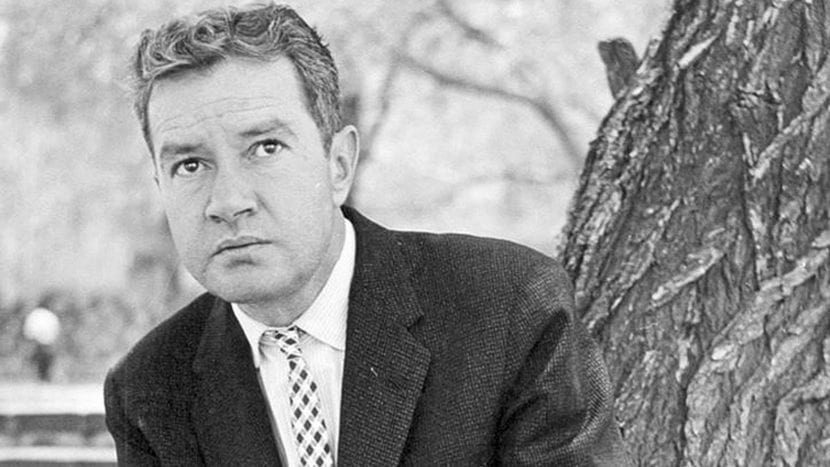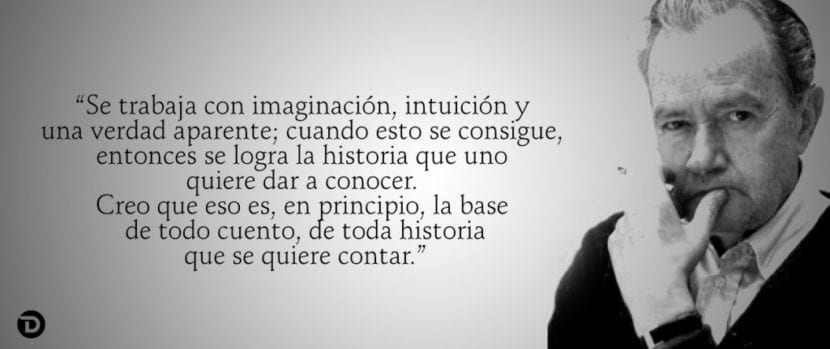
The Mexican writer Juan Rulfo.
Juan Nepomuceno Carlos Pérez Rulfo Vizcaíno was a photographer and writer of Mexican nationality. He was a member of the Mexican Academy of Language, one of the members of the 1952 generation and awarded the Princess of Asturias Award for Letters.
In Latin America he positioned himself as one of the best writers of the XNUMXth century and he was a legendary author in his country. Juan's personality was very reserved; his work Pedro Paramo it marked the end of the epoch of revolutionary literature and gave rise to the beginning of the Latin American boom.
Biography
Birth and family
Juan Rulfo was born on May 16, 1917 in Jalisco, Mexico. His father was Juan Nepomuceno Pérez Rulfo and his mother María Vizcaíno Arias, Juan came from a family that had a stable economy and was the third child of his parents, then he had two younger brothers.
They went to live in a town called San Gabriel, in Jalisco and there the family suffered the ravages of the Cristero War and his father was assassinated in 1923, when Juan was 6 years old. Four years later his mother died, leaving his grandmother in charge of him.
Youth and studies
Rulfo had started his primary school in the city where he lived. However, in 1929, years after his mother's death and because his grandmother could not keep him with her, the family enrolled him in an orphanage and he had to move to Guadalajara.
Once in the orphanage, Juan continued with his academic training; however, it was not a place he liked to be. In 1933 he tried to enter the University of Guadalajara, but due to general strikes he could not. After that he went to Mexico City, where he could not begin his studies either.
Laboral life
Once in the capital, he began to work in the Secretariat of the Government of Mexico and he traveled a lot around the country, as he had been assigned several different functions to his position and he had to fulfill them. In this period he learned a lot of culture and published several stories in magazines.
In 1947 he began his career as a photographer and married Clara Aparicio, a woman with whom he had four children. He worked in advertising for the company where he started as a photographer, Goodrich; at that time he collaborated in the development of the Papaloapan basin and published at the National Indigenous Institute.

Quote by the Mexican writer Juan Rulfo.
Literary race
In 1953 the author published The Burning Plain and two years later he made the work public Pedro Paramo, the latter was his top piece. Between 1956 and 1958 Juan Rulfo wrote The golden rooster, a novel that by its length he himself considers a story. The books by this author are among the best in Mexico.
Juan Rulfo's book of seventeen short stories and his novels were enough to have been awarded the National Prize for Literature in 1970. Four years later he traveled to Venezuela and at the Central University of that country he confessed that he had given up writing books due to the death of his uncle Celerino.
Last years and death
A decade later, in September 1980, he was chosen as a member of the Mexican Academy of Letters and also released his previously written account, The golden rooster. In 1983 he was awarded the Prince of Asturias Award, currently called the Princess of Asturias.
The author was diagnosed with cancer and on January 7, 1986 in Mexico City, and died of pulmonary emphysema. Due to its renown it was made public Los murmullos, journalistic anthology about the death of Juan Rulfo, a work with obituaries associated with his death.
Works
After the writer's death, one of his works was reissued, since there were several errors in it. Also, a book of stories that he had made throughout his life was published, in which Rulfo's transformation as a writer was evidenced.
Storybook
- The plain on fire (1953).
Contents
- "Macario".
- "They have not given the land."
- "The hill of the comadres".
- "It is that we are very poor".
- "The man".
- "At dawn".
- "Talpa".
- "The Burning Plain".
- "Tell them not to kill me!".
- "Luvina".
- "The night they left him alone."
- "Remember":
- "Paso del Norte".
- "Anacleto Morones".
- "Can not you hear the dogs barking".
- "The inheritance of Matilde Arcángel".
- "The day of the collapse."
Novels
- Pedro Paramo (1955)
- The golden rooster (1980, 2010 reissue).